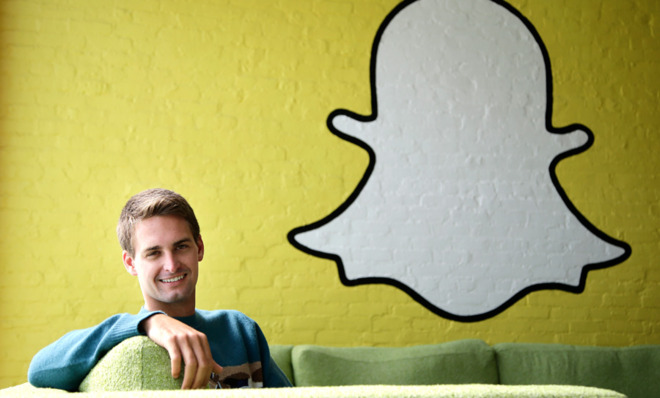Snapchat: Cautionary tales from companies that turned down big money
$3 billion sure sounds like a pretty sweet offer

A free daily email with the biggest news stories of the day – and the best features from TheWeek.com
You are now subscribed
Your newsletter sign-up was successful
Snapchat, the photo messaging service loved by teens and Wall Street bankers alike, turned down a $3 billion buyout offer from Facebook, reported The Wall Street Journal Wednesday. In doing so, founders Evan Spiegel, 23, and Bobby Murphy, 25, joined a cannon of tech entrepreneurs who have turned their back on unseemly sums.
Snapchat is not yet profitable — though that's hardly noteworthy for a young tech company. Still, critics say the company might have passed up the offer of a lifetime, pointing out that Snapchat's service — which lets users send photo-based messages that quickly disappear after opening — seems uniquely resistant to advertising.
It's too soon to say if Spiegel and Murphy scrapped a lottery ticket. The New York Times reports the two may be expecting bigger offers down the line. But in the history of tech start-ups, there are plenty of stories of companies who might have been wise to take their mega buyout offers when they came. Here are three:
The Week
Escape your echo chamber. Get the facts behind the news, plus analysis from multiple perspectives.

Sign up for The Week's Free Newsletters
From our morning news briefing to a weekly Good News Newsletter, get the best of The Week delivered directly to your inbox.
From our morning news briefing to a weekly Good News Newsletter, get the best of The Week delivered directly to your inbox.
PointCast
PointCast, founded in 1992 by Christopher Hassett, came to life when push technology was still the coolest thing on the playground. His product, essentially a screen saver with news updates, was an instant hit, and in January 1997, News Corp. reportedly offered Hassett $450 million for his creation.
PointCast rejected the offer, and instead tried to take the company public, says The Wall Street Journal. The timing was unfortunate, because shortly after, many abandoned the software, finding it clogged up too much bandwidth. In 1999, PointCast sold to LaunchPad Technologies for just $7 million in cash and stock.
Color
A free daily email with the biggest news stories of the day – and the best features from TheWeek.com
A more recent example: In 2011, a location-based social networking product Color caught Google's attention. Before Color even launched, the search giant reportedly floated a $200 million offer by founder Bill Nguyen. After turning it down, Nguyen launched the product. Reviews were not positive. "Unfortunately for the company, the app can offer a terrible experience for first-time users and appear absolutely useless to those outside of a densely packed, techie mecca like San Francisco or New York," said Mike Melanson on ReadWrite.
In 2012, the company reportedly sold to Apple for $7 million.
Friendster
In 2003, Google reportedly offered Johnathan Abrams, the founder of Friendster, $30 million for his year-old start-up. As TechCrunch told it in 2006, "Everything went downhill from there."
Friendster stumbled just as MySpace rose. Many people point to Friendster’s massive slow down as traffic grew as the reason people bailed out for the then hot new MySpace. If Friendster had been able to handle its growth, MySpace may never have gotten the space it needed to become the 1 billion plus page views per day behemoth it is today. [TechCrunch]
Of course, in 2004, Mark Zuckerberg launched Facebook, which would quickly eclipse both Friendster and Myspace to become the biggest social network in the world. In 2009, Friendster sold to a Malaysian businessman for an undisclosed sum.
Carmel Lobello is the business editor at TheWeek.com. Previously, she was an editor at DeathandTaxesMag.com.
-
 Sepsis ‘breakthrough’: the world’s first targeted treatment?
Sepsis ‘breakthrough’: the world’s first targeted treatment?The Explainer New drug could reverse effects of sepsis, rather than trying to treat infection with antibiotics
-
 James Van Der Beek obituary: fresh-faced Dawson’s Creek star
James Van Der Beek obituary: fresh-faced Dawson’s Creek starIn The Spotlight Van Der Beek fronted one of the most successful teen dramas of the 90s – but his Dawson fame proved a double-edged sword
-
 Is Andrew’s arrest the end for the monarchy?
Is Andrew’s arrest the end for the monarchy?Today's Big Question The King has distanced the royal family from his disgraced brother but critics claim a ‘fit of revolutionary disgust’ could still wipe them out